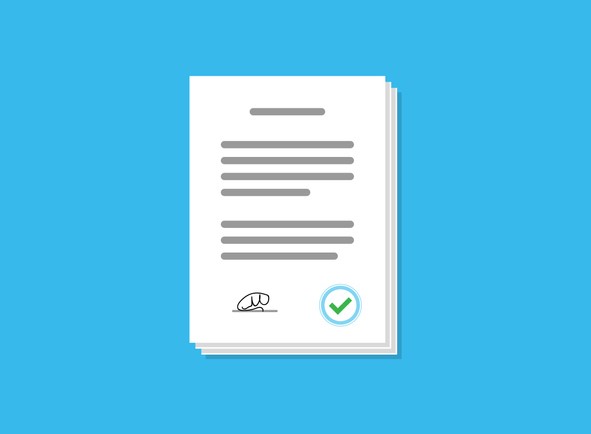A guide to writing business plans
What is a business plan? And why do you need one? William Kemp of Birketts LLP explains the importance of a good business plan and what to include in one.

What is a business plan?
At the most basic level, a business plan should set out what you want to achieve with your business and how you will achieve those goals. This can be a brief document if you are just starting out or it can be more complex as your business grows and develops.
Why do I need a business plan?
A good business plan can serve a number of purposes:
-
Targets
It can act as a map to guide you and your team to deliver the targets that you set for your business, giving you a ready-made action plan to follow. It can be helpful to look back and measure your achievements and those objectives still to be achieved and consider if a change of direction is needed.
Your business plan will also guide you as to the resources you need for your business and when you might need to take steps to address them – whether it’s new funding, premises or staff. You will also be able to identify your important assets so that you can ensure they are protected – a good example of this is intellectual property which can be registered to protect it from competitors.
-
Focus
A business plan also helps you to make the right decisions about your company and reduces the risk of pursuing the wrong opportunity. For example, the decision as to what price you should set for your product is key to a business but requires the balancing of several different pieces of information.
The process of preparing or updating a business plan forces you to consider these points and to make a decision that can be reflected in your business plan and as part of this process you will gain invaluable insights into your markets. You should also aim to develop a good understanding of your customers and your competition from this process.
Preparing a business plan can also give you new ideas and help you uncover new opportunities; it should help you to think creatively about problems you might be facing and come up with creative solutions to them. It can also be an excellent opportunity to involve your staff in the future of your business which can only help with staff engagement.
-
Investment
It’s also an important document to have if you are looking to attract investment. Beyond being a requirement of most finance providers, a well written business plan is an excellent tool to sell the idea of your business to a potential investor, demonstrating that you know what you are talking about and answering questions before they are asked.
Similarly, a good business plan can be used to sell the idea of your business to potential new employees – giving them a good sense of the business and where it’s going.
Should you update your business plan regularly?
A business plan should not be a document that remains static; it needs to be a living document that is reviewed regularly and refreshed as your business evolves and as you react to events.
Since the start of the COVID-19 pandemic many businesses have had to pivot from what they were doing to a new market. Whether it’s a fine dining restaurant providing a takeaway option or a stage magician delivering Zoom magic shows, there are numerous examples of how businesses have successfully pivoted to respond to events. When a business does this or even a smaller change, such as developing a new product or entering a new market, then your business plan should be considered afresh.
It’s also important that your business plan responds to regulatory changes, whether it’s GDPR meaning you need to review your website design or the need for a revised anti-bribery and corruption policy because of a change of legislation. Your plan can identify these issues and enable you to seek appropriate professional advice at the right time.
What needs to be included in a business plan?
How to go about the writing a business plan will differ for each company. However, a good starting point is to think that you are explaining what your business does to someone who is not familiar with it:
- What product or services do you provide?
- How do you go about producing/delivering your product/service?
- How much will you charge for them?
- Who are your customers?
You can then go on to what you want to achieve for the future, whether that is new products, new markets or simply selling more of the same.
If it’s new products or services:
- How will they be developed and then delivered?
- Will you need new premises? If you want to go into new markets
- How will you identify them?
If you want to sell more to your existing markets:
- What is your marketing plan?
If you can answer these questions in your business plan, then you are well on your way to a good business plan.
As your business matures it’s also important to think about your future and to include in your business plan your succession planning, whether that is preparing the business for a sale, bringing through new management internally or looking outside the business as you step back from the business. Engaging with professionals at the right time to advise you on what steps to take is important, as it’s throughout the lifespan of your business.
Summary
A good business plan can be an invaluable tool, both when you are just starting your business and when you are looking to take an established business to the next level. It may be time consuming to prepare but the return on the investment of your time can be significant.

About the author
William Kemp is a Solicitor in the Corporate Team at Birketts LLP and deals with a wide range of corporate matters, acting for a range of clients including SMEs and individuals.
See also
A guide to memorandum and articles of association
What are Gazette company profiles?
Employment law: what to expect in 2021 and beyond
Find out more
Write a business plan (GOV.UK)
Companies House (GOV.UK)
Image: Getty Images
Publication date: 27 January 2021
Any opinion expressed in this article is that of the author and the author alone, and does not necessarily represent that of The Gazette.
